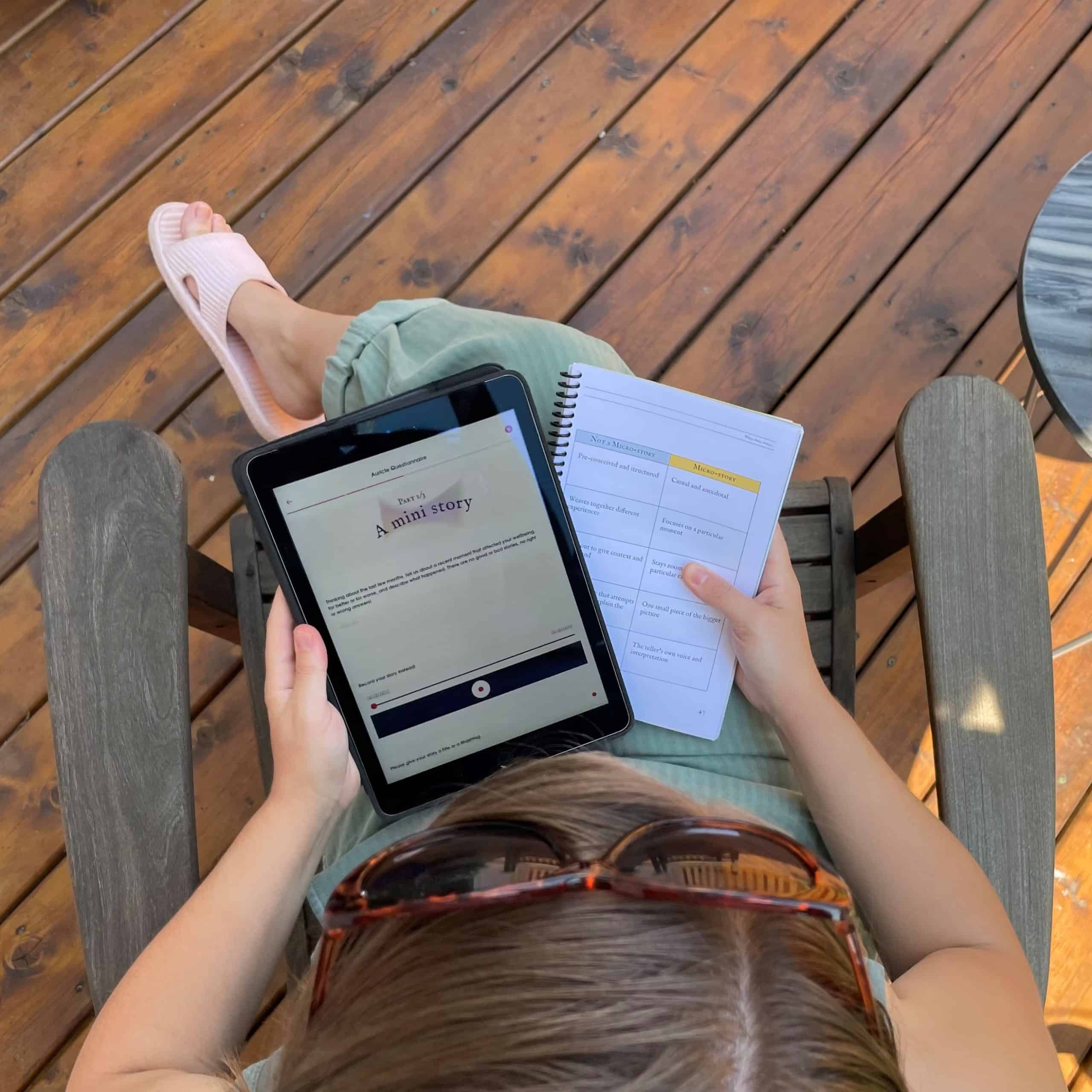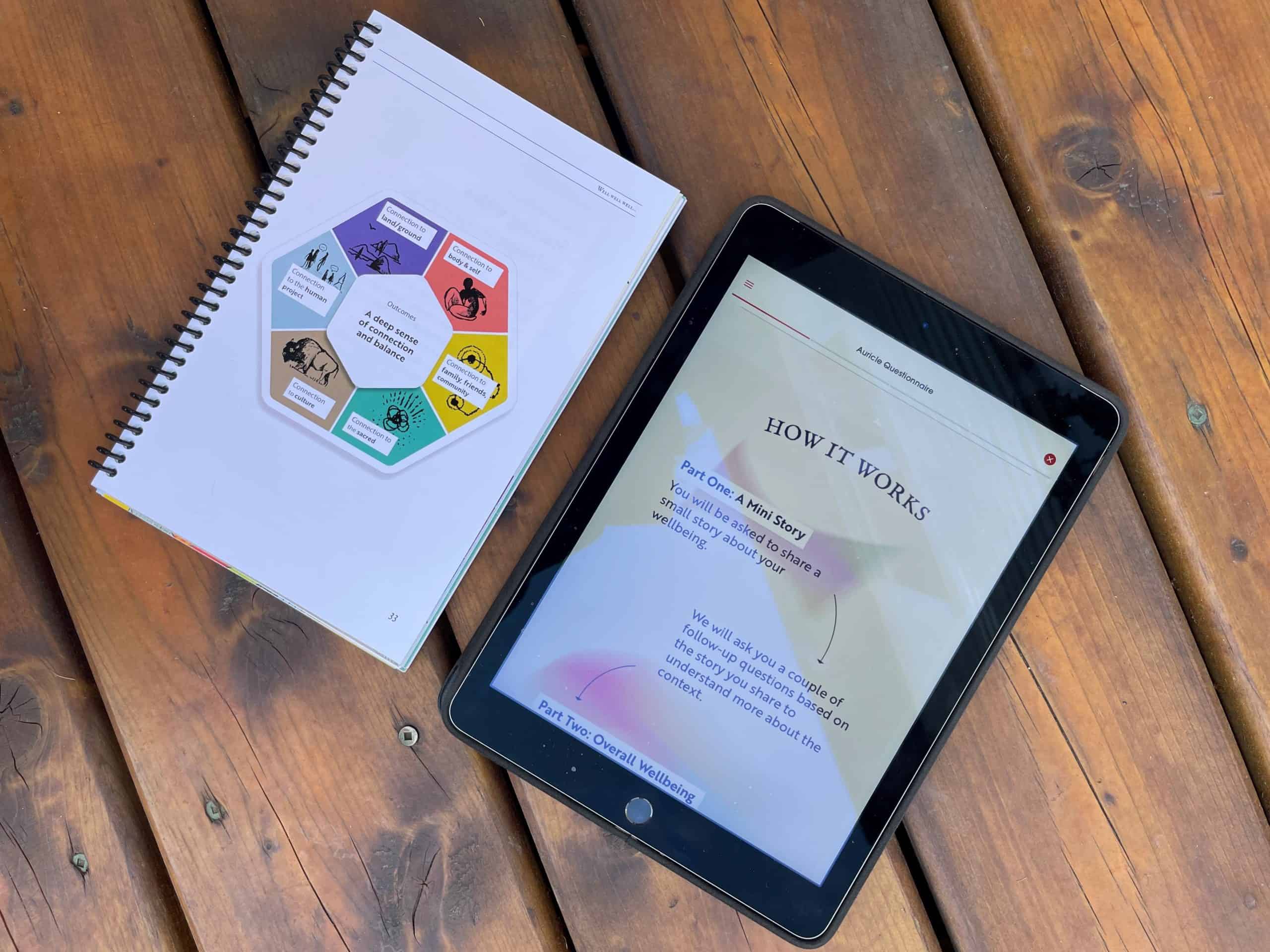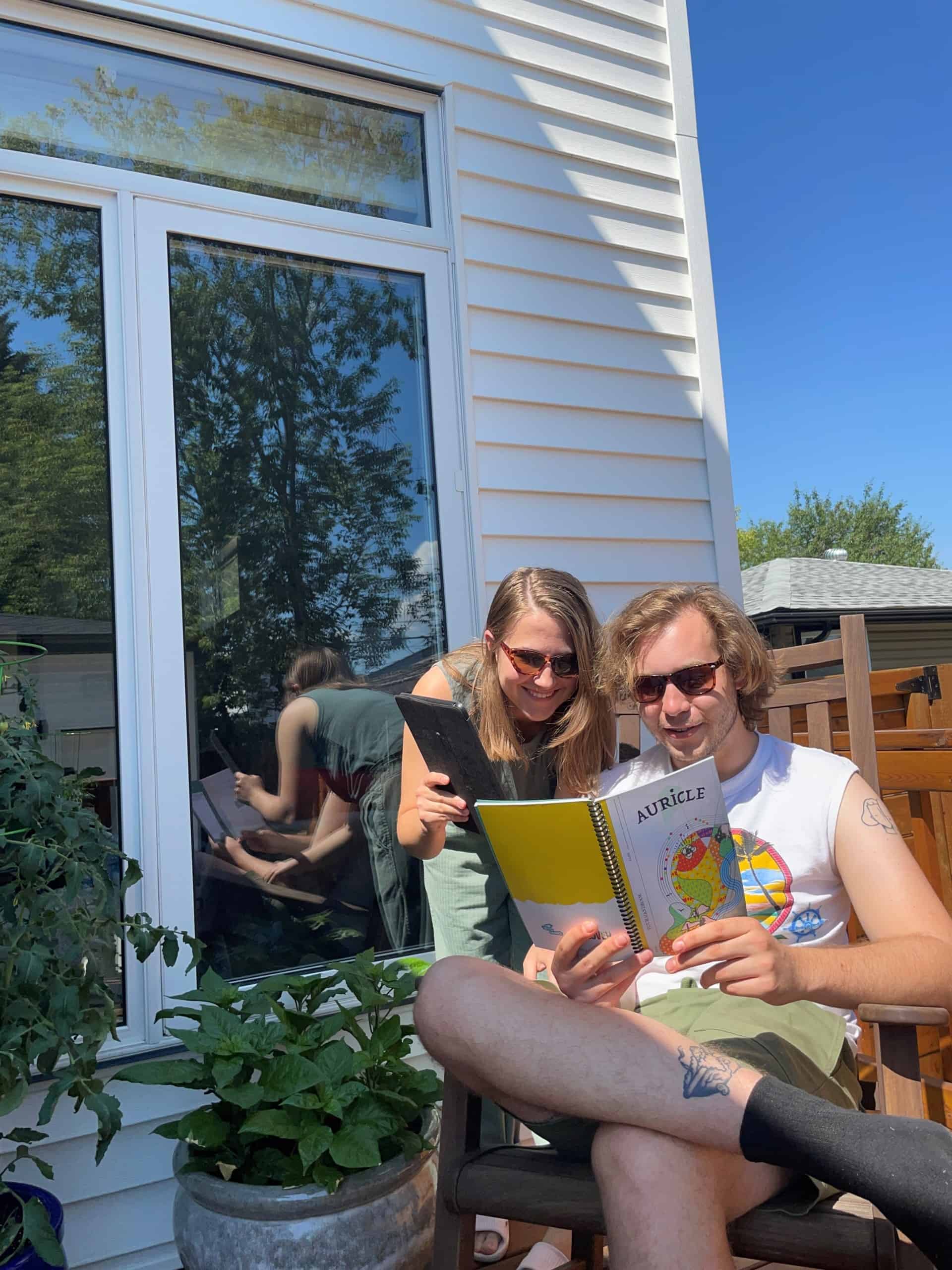Exploring well-being with Auricle
Well-being is something we constantly grapple with. Are we happy enough? Have we achieved everything we should? Are we doing as well as our neighbours?
Instead, we should be asking ourselves what exactly well-being means.
Auricle is a prototype being piloted in Alberta Avenue. It is designed to explore what well-being looks like from the lived experiences of individuals, rather than from assumptions of what well-being “should” look like.
Ivy Staker and Natalie Napier, members of the core prototype team from InWithForward, say Alberta Avenue was chosen because of its diversity.
“It has a diverse income spectrum as well as ethnic diversity and diversity of citizenship status,” says Napier. Auricle is also interested in exploring what well-being looks like on a community level.
Auricle has partnered with revitalization organizations InWithForward and Edmonton’s RECOVER team “to change the way that the City tunes in to its residents, the way we talk about well-being, and the way we listen,” says Staker. Instead of only collecting community statistics and numbers, Auricle uses stories as data. Residents share short stories about how they experience wellness or when they’ve felt well or unwell, and then explain what the story means. This eliminates a large percentage of researcher bias while providing context for the data. “The less that we’re interpreting, the more that community members can tell us, and the more grounded in their actual voices their data will be,” says Staker.
Researchers chose to use story as data because other ways of measuring well-being weren’t communicating its subjectivity.
“We spent months looking at all of the existing measures around well-being, from community level, to cities, to nations,” says Staker, “and [we] just found that they left us with more questions than answers… Having no choice but to score yourself on a seven-point or a ten-point scale left out so much meaning.”

Data is collected in the form of short stories. | Ivy Staker 
Gathered data can be used to improve the well-being of the community. | Ivy Staker
Napier adds that if someone rates their well-being as a five, how can we compare that to another person’s five? How can we be sure that they mean the same thing?
A major goal of the project is to transform the way data is collected and make the process less extractive and more rewarding. Napier says, “Often when you do a survey, it’s a really poor-quality experience. It doesn’t necessarily add meaning to your life, it doesn’t actually give you anything, [and] it doesn’t help you understand your own experience better—you just give it away. And we think that we can design this interaction to be meaningful to both parties and to really honour people’s experiences.”
The project’s aim isn’t to prove or validate anything, but to explore the topic of well-being and learn what it means to different people. The gathered data will be owned by the storytellers but available for community members to access. “It will be endlessly interpretable, and it could be something that people could dig into for quite a while to come,” says Napier.
Through community sense-making events, Auricle hopes to encourage residents to become interested in the stories about their community, empower them to further their own community projects, and generate conversations. These sense-making events will help community members make sense of the collected data so it can be used to give back to the community.
Auricle will also work with City staff to help them recognize the importance of this data. Napier says governments tend to value objective data and see it as more legitimate, but stories provide a wealth of knowledge that numbers can’t, and allow governments to “better direct resources and support for communities,” notes the Auricle website.
Auricle is already collecting stories about well-being. If you have a story you’d like to share, visit Auricle’s website. Anyone can contribute a story online or you can share your story in person over a cup of coffee with a local listener!







